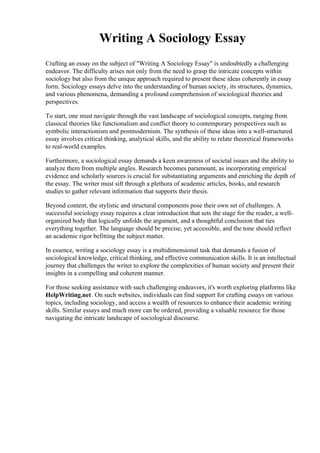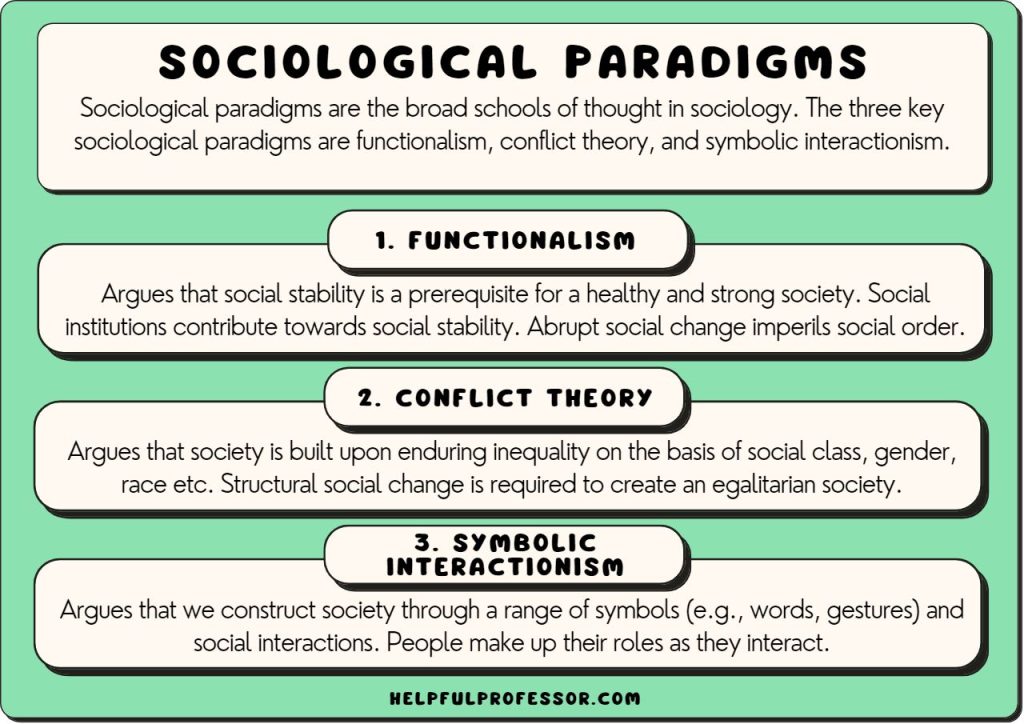Have you ever found yourself questioning the “grand narratives” that shape our understanding of the world? The idea that history marches towards a predetermined conclusion, or that there exists a single “truth” waiting to be discovered? If so, you might be tapping into the complexities of postmodernism, a vibrant and often controversial intellectual movement that has profoundly impacted sociological thought.

Image: www.slideshare.net
Postmodernism, in essence, pushes back against the idea of universal truths and objective knowledge. It encourages us to see the world through a multiplicity of lenses, recognizing the inherent ambiguity and subjectivity ingrained in every interpretation. This article delves into the fascinating world of postmodern sociological perspectives, exploring its core tenets, historical roots, and its ongoing influence on our understanding of social structures, identity, and power.
The Roots of Postmodernism: A Brief History
From the Ruins of Modernism
Postmodernism emerged as a reaction to the perceived limitations of modernism, a dominant philosophical and intellectual framework that emerged in the 18th century. Modernism championed reason, progress, and the belief in a unified and knowable reality. Key figures associated with modernism include Karl Marx, Emile Durkheim, and Max Weber, who sought to unravel the underlying laws governing society.
However, postmodernists began to question these seemingly absolute truths. The horrors of World War II, the rise of consumerism, and the increasing fragmentation of social life led them to believe that modernism’s grand narratives had failed to account for the complexity and instability of the human experience. Postmodernism, in many ways, was born from the ashes of these failures.
Post-structuralism, Deconstruction, and the Death of the Author
Postmodernism draws inspiration from various intellectual currents, including post-structuralism and deconstruction, which challenge the very foundations of knowledge and meaning. Key figures like Michel Foucault, Jacques Derrida, and Jean-François Lyotard further deconstructed the idea of fixed, universal meanings. They argued that knowledge is not a neutral reflection of reality, but a product of power relations, historical context, and the very language we use to describe the world.
Deconstruction, for instance, proposes that every text is inherently unstable and open to multiple interpretations. It seeks to reveal the hidden meanings and power dynamics embedded within language, exposing the limitations of traditional hermeneutics (the interpretation of texts). The “death of the author” theory, which suggests that the author’s intention is irrelevant to the true meaning of a work, further illustrates this rejection of fixed meaning.

Image: ar.inspiredpencil.com
Key Concepts in Postmodern Sociology
Simulation and Hyperreality
Jean Baudrillard, a prominent postmodern thinker, introduced the concept of “hyperreality,” a state in which simulation and representation have become indistinguishable from reality itself. In a society saturated with media, advertising, and mass-produced images, we often lose touch with the authentic and are left navigating a world of simulacra (copies without originals). Think of social media’s impact on our self-perception and social interactions, or the artificiality of theme parks that are designed to replicate “real-life” experiences.
Identity as Fluid and Decentered
Postmodernism challenges the fixed identities that modern sociological theories often assumed. It argues that identities are not predetermined but fluid, multiple, and constantly in flux. Individuals are not merely products of social structures but active agents in constructing their own identities through self-expression, consumption, and social interaction. The fluidity of identity is evident in the rise of multiculturalism, the increasing visibility of marginalized groups, and the embrace of personal narratives and lived experiences.
Power and Knowledge
Michel Foucault’s work is central to understanding postmodern perspectives on power. He argued that power is not solely confined to institutions, but permeates every aspect of social life. Knowledge becomes a tool for power, shaping our understanding of the world and defining what is considered “normal” or “deviant.” The concept of “discourse” plays a crucial role in this framework, as it refers to the systems of language and thought that shape our understanding of reality, often embedded with power dynamics that favor specific groups and marginalize others.
Postmodernism’s Influence on Sociology
Beyond Grand Narratives: A Focus on Everyday Life
Postmodernism shifted the focus of sociology from studying large-scale structures to exploring the micro-level, everyday experiences of individuals. This led to the emergence of new subfields like the sociology of everyday life, which examines the personal narratives, rituals, and practices that shape our lives. It also gave rise to a focus on social constructionism, which emphasizes the role of social interactions in creating and maintaining our understanding of reality.
New Perspectives on Identity and Difference
Postmodernism has profoundly influenced our thinking about identity, race, gender, and sexuality. It has challenged traditional categories and hierarchies, embracing the fluidity and multiplicity of human experience. Postmodernist theories like intersectionality, which recognizes the unique interplay of multiple social categories like race, gender, and class, have provided new frameworks for understanding the complexities of social inequality.
The Rise of Cultural Studies and Consumer Culture
Postmodernism has also fueled the development of cultural studies, a field that examines the meanings and significance we create through pop culture, media, and consumption. It explores the ways in which these elements shape our identities, beliefs, and understandings of the world. Postmodern thinkers have analyzed the pervasiveness of consumerism, the proliferation of media images, and the rise of celebrity culture, identifying the ways in which these trends shape our values and social interactions.
The Critiques of Postmodernism
Postmodernism, despite its significant influence, is not without its critics. Some argue that its emphasis on fragmentation and deconstruction can lead to nihilism and a paralyzing sense of relativism. Others contend that its focus on power relations can neglect the agency and creativity of individuals in their everyday lives. Still, others argue that postmodernism’s embrace of subjectivity and multiplicity can make it difficult to engage with objective analyses of social phenomena.
Postmodernism Sociological Perspectives
Moving Forward: Postmodernism’s Enduring Legacy
While postmodernism’s era of dominance may have passed, its influence continues to resonate within contemporary sociological thought. Its insights into the nature of power, identity, and the social construction of knowledge remain vital for understanding our increasingly complex and interconnected world. Postmodernism’s emphasis on critical thinking, skepticism, and the need to challenge established narratives prompts us to constantly examine our assumptions and engage with the diverse perspectives that shape our shared social experience.
This article has merely scratched the surface of postmodernism’s vast and intricate landscape. To delve deeper, explore the works of key thinkers like Foucault, Derrida, Lyotard, and Baudrillard. Engage with the ongoing debates surrounding postmodernism and its influence on sociology. Let postmodernist ideas serve as a springboard for your own explorations, challenging you to think critically and critically engage with the world around you. Remember, as the postmodernist motto goes, “There is no truth, only interpretations,” so embrace the multiplicity of perspectives and forge your own understanding of this dynamic intellectual landscape.






